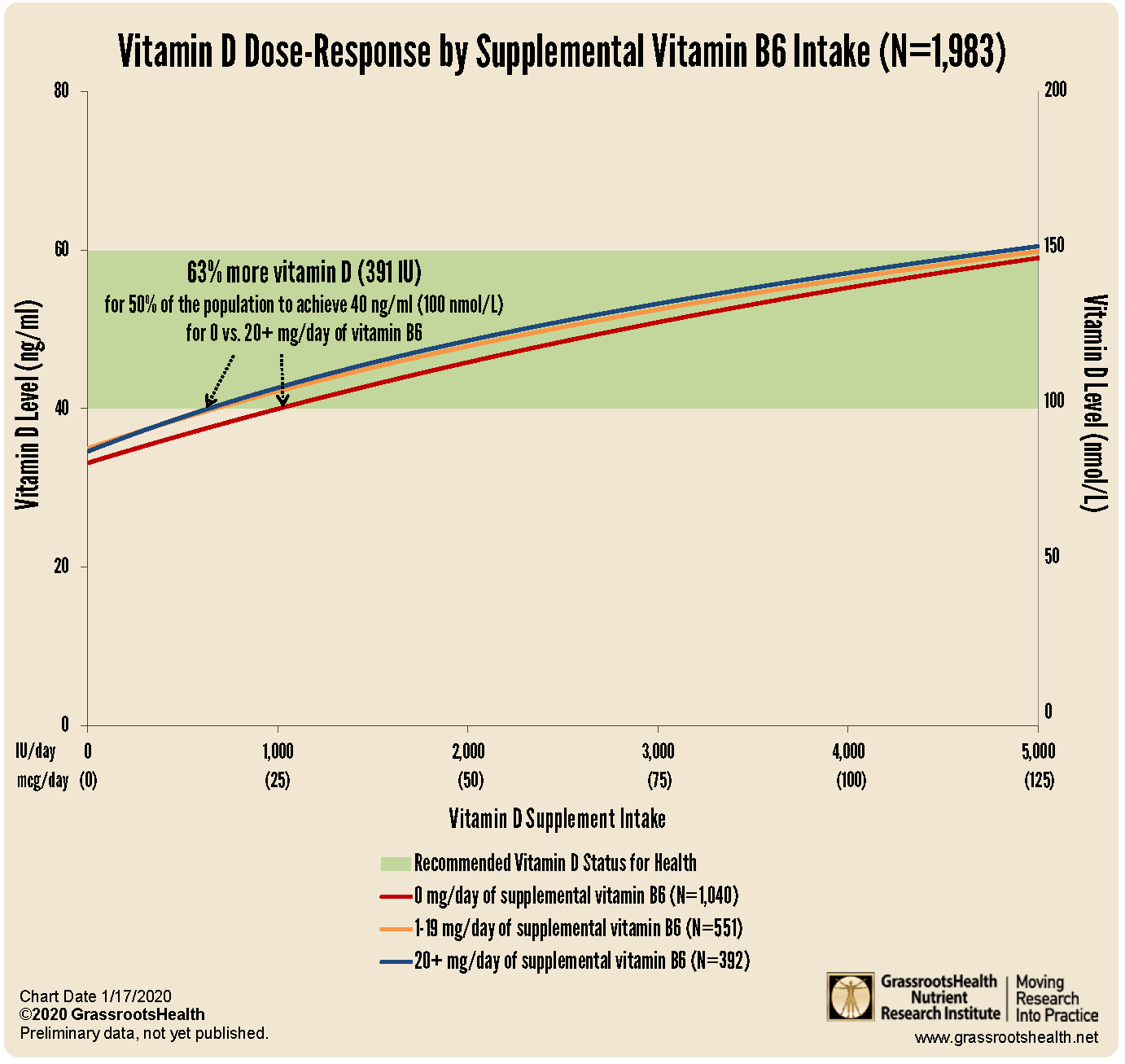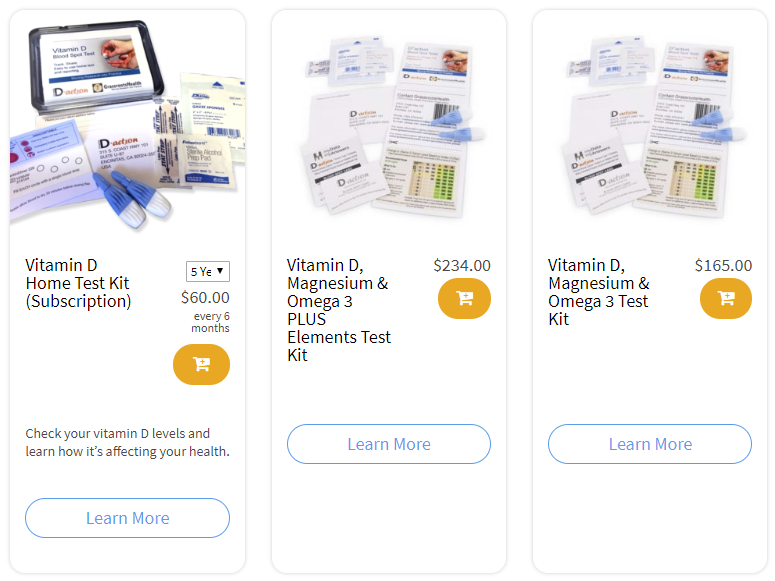Published on February 5, 2020
 In a previous blog we showed how much supplemental vitamin B6 GrassrootsHealth participants report taking. In today’s blog we will investigate whether supplemental vitamin B6 intake affects vitamin D levels.
In a previous blog we showed how much supplemental vitamin B6 GrassrootsHealth participants report taking. In today’s blog we will investigate whether supplemental vitamin B6 intake affects vitamin D levels.
Using the data provided for the GrassrootsHealth study from almost 2,000 participants with supplemental vitamin B6 information, we plotted every participant’s supplemental vitamin D intake (dose) and blood level (response) and determined the average trends for participants who reported taking no supplemental vitamin B6, those who reported taking 1 to 19 mg/day, and those who reported taking 20 mg/day or more.
The dose-response chart above shows that on average, those taking supplemental vitamin B6 have a higher vitamin D level for any given vitamin D intake amount than those not taking supplemental vitamin B6. Specifically, 63% more supplemental vitamin D was needed for 50% of the population to achieve 40 ng/ml (100 nmol/L) for those not taking supplemental vitamin B6 compared to those who took 20 mg/day or more. The trend lines for both supplemental vitamin B6 intake amounts (1-19 and 20+ mg/day) were similar.
Is your immune system strong enough to help you stay healthy?
Make sure you know your vitamin D level, and take steps to keep it within a target of 40-60 ng/ml or 100-150 nmol/L! Through GrassrootsHealth Nutrient Research Institute, you can also test your essential elements magnesium, copper, zinc and selenium, toxins such as lead, mercury and cadmium, as well as your omega-3 levels, inflammation levels and thyroid stimulating hormone (TSH) level. Find out your levels today! Log on to the test selection page (click the link below) to get your tests and see for yourself if your levels can be improved.
Make sure you track your results before and after, about every 6 months!
Click Here to Access the Test Page
How can I track my nutrient intake and levels over time?
To help you track your supplement use and nutrient levels, GrassrootsHealth has created an online personal health tracking system called myData-myAnswers. For each specific supplement, you can track what days you take it, how much, and many other details. This will help you know your true supplemental intake and what patterns of use work for you to reach and maintain optimum nutrient levels. Check it out today!








